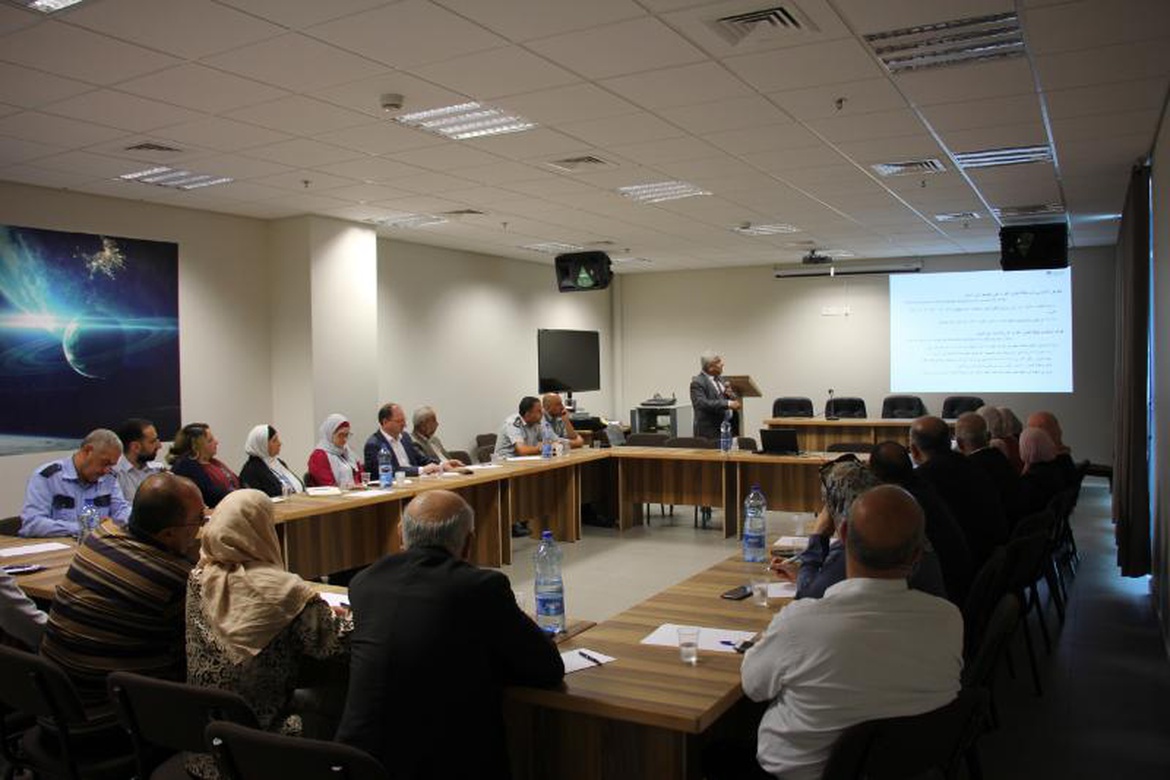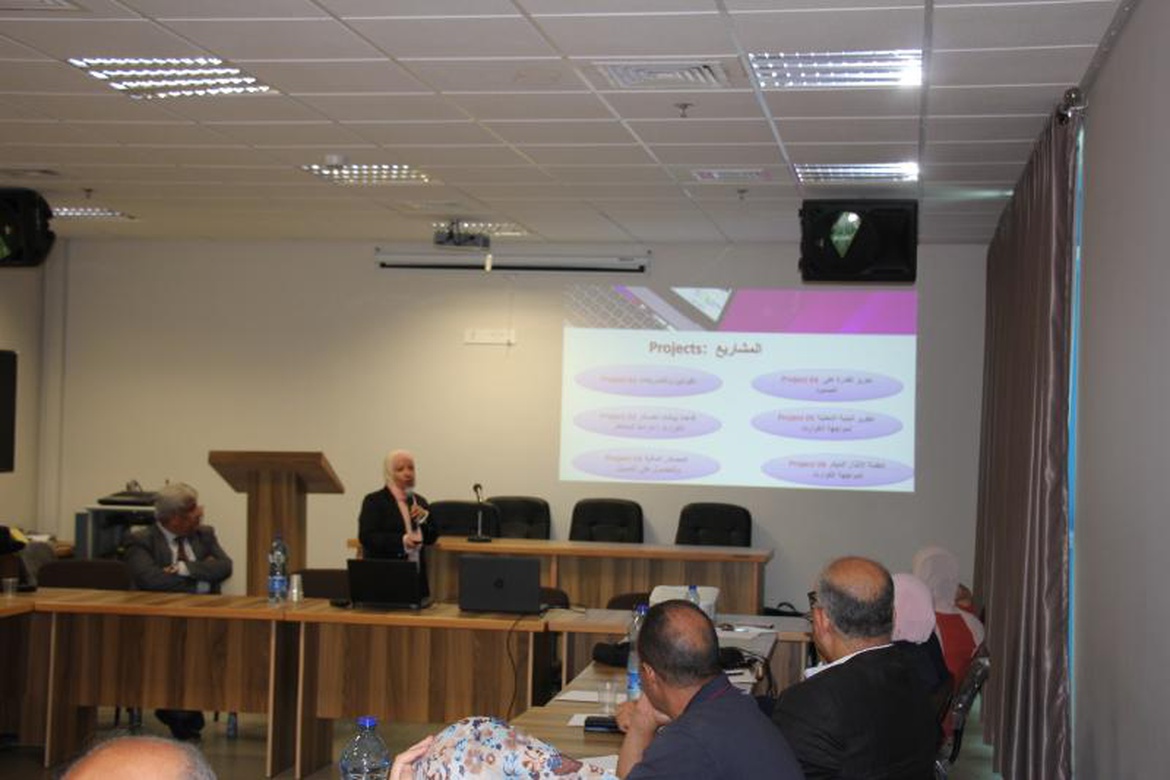An-Najah University Holding a Workshop about “The Making Cities Sustainable and Resilient Action”

On Monday July 29, 2019, An-Najah National University in cooperation with Nablus Municipality and the Palestinian Engineers Syndicate held a workshop at the University’s Scientific Centers Building- Conference Hall to present the results of “The Making Cities Sustainable and Resilient Action” Initiative.
The workshop was attended by the Mayor of Nablus Municipality Eng. Adly yaish, Eng. Samih Tubaileh, a member of the Municipal Council and Eng. Sameh Al-Assi, as well as representatives from several institutions and ministries such as the Ministry of Information, the Ministry of Public Works and Housing, the Palestinian Telecommunications Company(PALTEL), Medical Laboratory syndicate in Palestine, the Ministry of Agriculture, the Health Directorate, the Ministry of National Economy, the Ministry of Local Government, and the Environmental Quality Authority.

Prof. Jalal Al-Dabeek, Director of Urban Planning and Disaster Risk Reduction Centre at An-Najah and Vice President of Palestinian National Agency for Disaster Risk Mitigation, briefed the attendees about the UN Secretary-General's Special Representative for Disaster Risk Reduction's Making Cities Resilient Campaign, which addresses issues of local governance and urban risk and invites local governments to commit to a list of 10 Essentials aimed at reducing disaster risks in their communities. Under this initiative, UNISDR and its partners have been working with 20 high risk cities globally to strengthen capacities to develop and initiate the implementation of disaster risk reduction and resilience plans.

Prof. Dabbeek said that Nablus City was chosen among 20 cities around the world to be part of an international project about empowering cities to be sustainable and resilient, and funded by the United Nations Office for Disaster Risk Reduction. He pointed out that this project aims to build more sustainable and resilient cities, by strengthening the capacity of key public, private and civil society stakeholders to assess and address risk to ensure that public and private investments are risk-informed and that early interventions in crisis-prone cities are linked to longer-term development.
Also, he explained how the capacity and resilience of Nablus were analyzed by mobilizing the ten fundamentals of the city resilience measurement card, which included three main axes: governance and financial capacity, integrated planning and disaster preparedness.
In turn, Dr. Amal Hodhod, Director of the Strategic Planning and Economic Development Unit in Nablus Municipality, presented the project’s implementation phases and its outputs.
The workshop resulted in many recommendations, including the need to spread awareness among citizens, officials and stakeholders about the importance of joint coordination and cooperation between them at local and national levels, and the importance of the mobilization of financial resources to implement the project’s plan to improve the understanding of, and capacity to address disaster risks and build resilience at the local level, with a focus on building local capacities in the city.
Notes:
“Making cities sustainable and resilient: implementing the Sendai Framework for Disaster Risk Reduction 2015-2030 at the local level” is a three-year initiative by the United Nations Office for Disaster Risk Reduction (UNISDR) and United Nations Human Settlements Program (UN-Habitat), supported by the European Commission.






